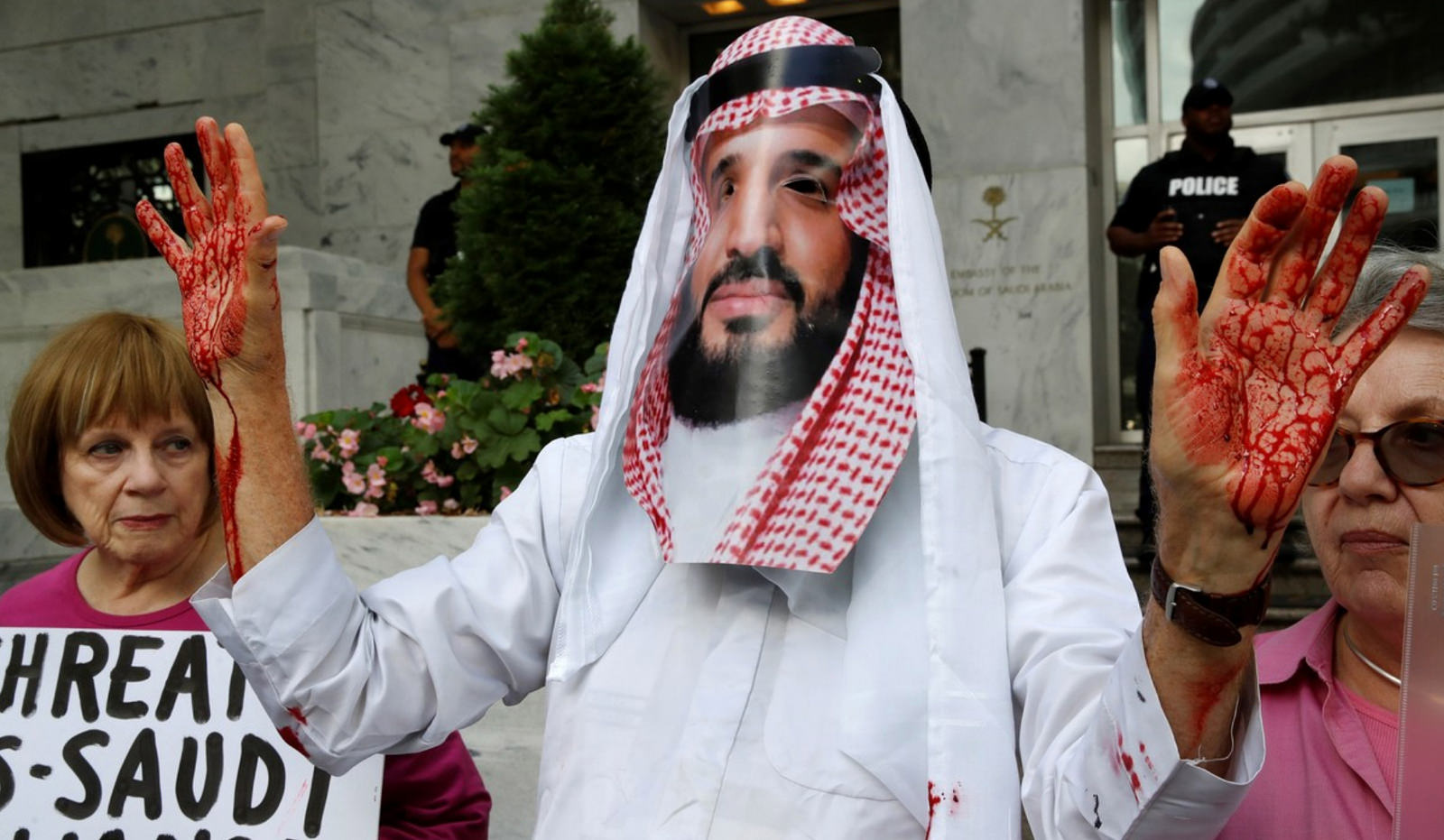It has been interesting to watch the reaction of the foreign policy establishment in Washington, D.C. to the vicious murder of Jamal Khashoggi. Perhaps because of his professional ties to journalists, reporters like David Ignatius are having to walk a fine line about their previous admiration for the reforms supposedly championed by Saudi Crown Prince Mohammed bin Salman.
I was reminded of something Jeffrey Goldberg wrote in his extensive article about President Obama’s foreign policy a little over two years ago.
A widely held sentiment inside the White House is that many of the most prominent foreign-policy think tanks in Washington are doing the bidding of their Arab and pro-Israel funders. I’ve heard one administration official refer to Massachusetts Avenue, the home of many of these think tanks, as “Arab-occupied territory.”
There were gasps all around Massachusetts Avenue when Goldberg articulated the former president’s views on Saudi Arabia.
[Obama] has also questioned, often harshly, the role that America’s Sunni Arab allies play in fomenting anti-American terrorism. He is clearly irritated that foreign-policy orthodoxy compels him to treat Saudi Arabia as an ally…
Obama’s patience with Saudi Arabia has always been limited. In his first foreign-policy commentary of note, that 2002 speech at the antiwar rally in Chicago, he said, “You want a fight, President Bush? Let’s fight to make sure our so-called allies in the Middle East—the Saudis and the Egyptians—stop oppressing their own people, and suppressing dissent, and tolerating corruption and inequality.” In the White House these days, one occasionally hears Obama’s National Security Council officials pointedly reminding visitors that the large majority of 9/11 hijackers were not Iranian, but Saudi—and Obama himself rails against Saudi Arabia’s state-sanctioned misogyny…
His frustration with the Saudis informs his analysis of Middle Eastern power politics.
That kind of talk made the foreign policy establishment nervous because they have always been wedded to the idea that there are white hats and black hats in Middle East conflicts. Among the white hat crowd are Israel and the Sunni dominated Gulf States like Saudi Arabia, who want to ensure that Shia-dominated Iran is viewed by this country as the wearer of the black hat.
The fact that a U.S. resident was murdered by one of the white hats throws that narrative into chaos. Writing at the American Spectator, Jed Babbin identified who the so-called “winner” would be in the fallout from the murder of Khashoggi.
If U.S. aid to the Saudis is reduced, or if that aid is tied to restrictions on the Saudi campaign in Yemen, Iran’s forces there will be strengthened.
Donald Trump has his own reasons for wanting to absolve the Saudis of any complicity in this whole affair. Those most likely have to do with his own financial holdings and the way the monarchy fed his narcissistic ego during this trip to the kingdom early in his presidency. In other words, for this president, everything is always about him.
But neocons, like Trump’s national security advisor John Bolton, and the guy who is on the short list to be the next defense secretary, Sen. Tom Cotton, have a lot invested in propping up Saudi Arabia as the good guy in this country’s battle with the evil forces in Iran. None of them have the ability for nuance that Obama demonstrated when he refused to take sides. Here’s how he outlined his vision of where that could lead to David Remnick back in 2014.
Ultimately, [Obama] envisages a new geopolitical equilibrium, one less turbulent than the current landscape of civil war, terror, and sectarian battle. “It would be profoundly in the interest of citizens throughout the region if Sunnis and Shias weren’t intent on killing each other,” he told me. “And although it would not solve the entire problem, if we were able to get Iran to operate in a responsible fashion—not funding terrorist organizations, not trying to stir up sectarian discontent in other countries, and not developing a nuclear weapon—you could see an equilibrium developing between Sunni, or predominantly Sunni, Gulf states and Iran in which there’s competition, perhaps suspicion, but not an active or proxy warfare.
As we observe the foreign policy establishment grapple with how to get back to their preferred narrative about the Middle East in the aftermath of Khashoggi’s murder, it is important to keep that kind of vision in mind and not succumb to the good vs. evil dichotomy.



